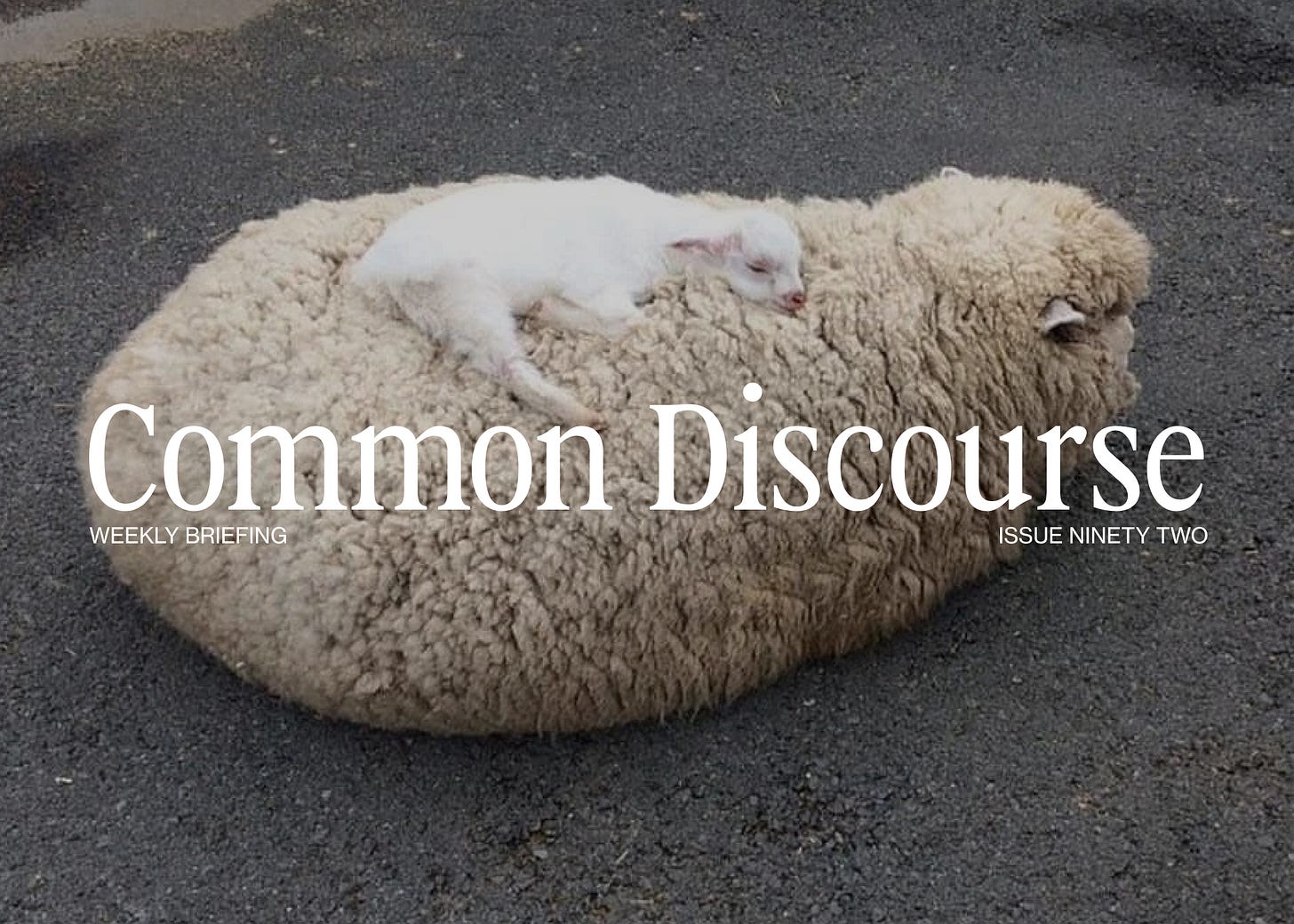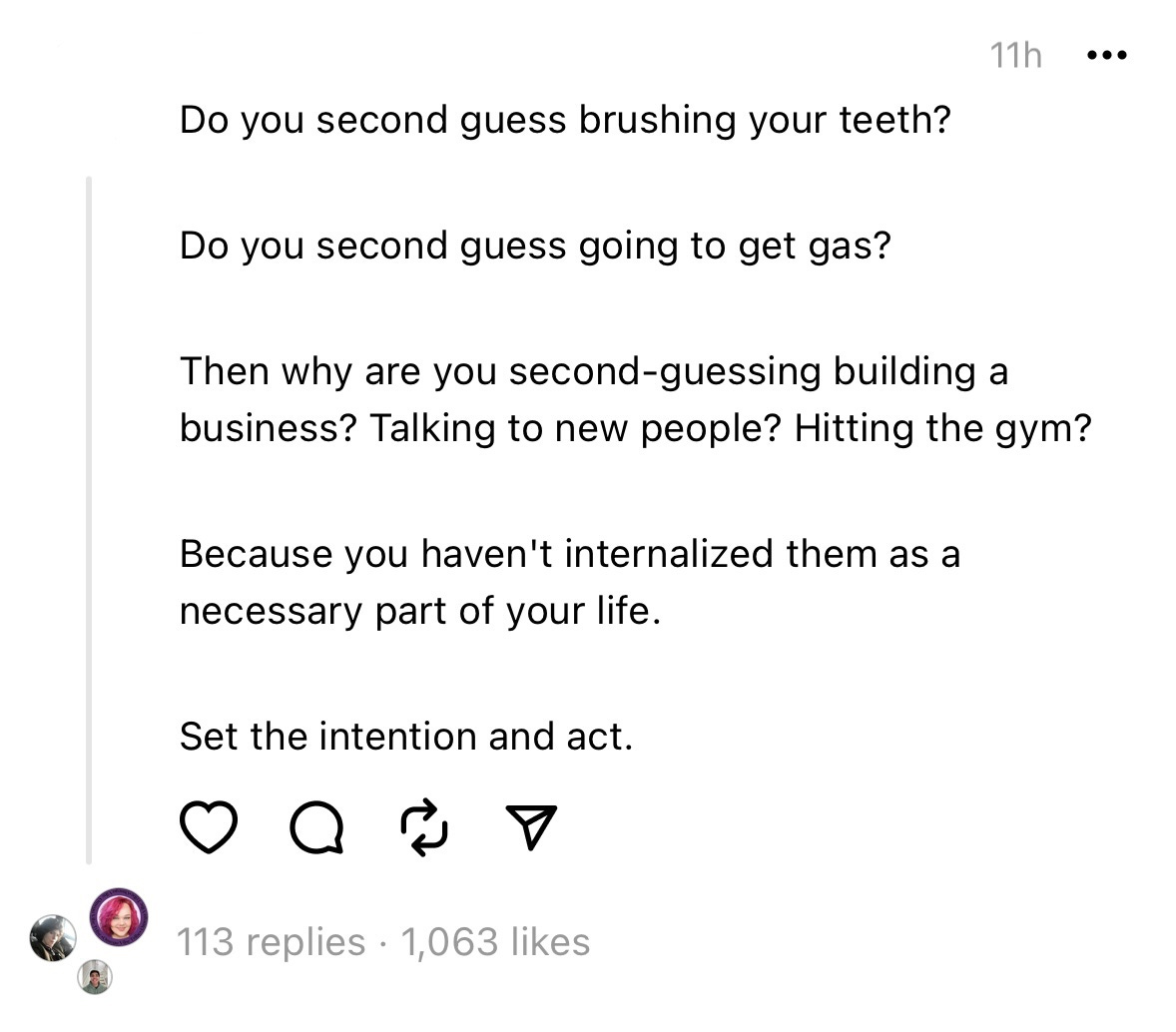#092 Help Yourself
Common Discourse is a project designed to help others (and ourselves) think through creativity, focus, and intentional work—from Alex Tan & Alice Otieno.
Every Tuesday we share words from a journal, a few ideas, a quote from somebody else, and links worth sharing. On Fridays we invite a guest to share images from their camera roll and a sound that resonates with them. Words from the Journal come once a month.
My dad is really into Twitter lately. He keeps sending my brothers and I threads from people that all write about the same things surrounding business, finance, technology, self-help, etc…
I think they’re just stealing from each other because the internet favors a very specific format.
Like this:
When I first started to publish my writing, I had an enormous fear of being associated with people that write like the example above. I still do, really. I get emails requesting advice about life and career often, and I vent to Mackenzie that I don’t feel like I should be the person answering these things. She’ll jokingly respond, “Well, I could only imagine why people are asking you for advice.”
I don’t look at Common Discourse as an advice or inspiration column. Perhaps it’s a bit delusional, but I don’t even think I write self-help. Maybe I just tell myself that so it makes me feel better.
Most self-help is individualistic. It’s a lot of pumping people up and telling them that they don’t need anything or anyone else other than what they have right now and if you don’t do it then they’re worthless and don’t want it bad enough.
If you’ve ever had a conversation with somebody like that in real life, you probably wouldn’t ever talk to them again. The nature of that interaction is a static, one-way street. On the other hand, you look at somebody like Samuel D Ross, he is simultaneously making making, writing, providing resources for those around him. If you struck up a conversation with him, he’d probably make you feel like you could do it too. “It” being anything.
I used to search for resumes and accolades to help me decide whether or not I should listen to somebody, but now I just look for conviction. There’s such a clear difference between people who are going through it with you versus the those who are just saying the right things that an algorithm will pick up from the sidelines.
I think most Self-Helpers aren’t saying anything objectively wrong. Many of them are saying things that could in fact, be very helpful. But no matter how helpful words are objectively, trust is the barrier to entry—which goes well beyond a commanding tweet or an individual order.
Trust is a conversation at dinner, a well-told story, a shared experience, writing that you read in a warm & welcoming voice.
Trust is two people choosing to be there.
I don’t write self-help, I write words that have helped me. And you’re welcome to let them help you too.
— Alex
A few ideas
I. GOOD TASTE
Good taste is the result of staying highly focused.
The most tasteful people I know pay close attention, search for deeper truths, and are not interested in leaving their options open.
II. INFORMATION
The problems we face today don’t need more data to be solved.
There is an unimaginable amount of data in the world right now, and we’re paying the price for it.
But what we could use a lot more of is information. And there’s a huge difference.
Data are loose dots floating around with no specific purpose and static dimension—a new webpage, a few images, or some text on a page.
Information is what happens when somebody decides to connect those dots into something new and purposeful.
III. THE OPPOSITE OF MORE
The opposite of more is not less. If we do it right, the opposite of more is better.
A quote from somebody else
“I hope you will go out and let stories, that is life, happen to you, and that you will work with these stories from your life... water them with your blood and tears and your laughter till they bloom, till you yourself burst into bloom. That is the work. The only work.”
— Clarissa Pinkola Estés
Links worth sharing
🎾 The Toss: A detailed look at a critical element of elite serving that can determine who wins each point in a tennis match, NY Times
👩💻 Cyberfeminism Index an in-progress online collection of resources for techno-critical works from 1990–2020, gathered and facilitated by Mindy Seu
❓ Three Questions on Media Criticality
💊 Capsule is KALEIDOSCOPE's new sibling publication delving into the world of design in its broader definition—one that encompasses interiors and architecture, fashion and technology, ecology and craft—to explore our relationship with desire and consumption.
Thanks for consuming!
ABOUT
ℹ️ Read more about Common Discourse here.
📬 If you like this newsletter, please consider sharing with others who might enjoy it as well.
🗂 Here is every Common Discourse weekly briefing to date.
COMMUNITY
🐤 We have a Twitter feed where we populate things that resonate.
⭐ We use Are.na as a tool to archive specific aspects of this project.
🗣️ Use the comment feature at the bottom of this article or reply via email to start a conversation.
💬 Download the Substack App and use Chat to interact with us and other subscribers to Common Discourse on a more frequent and casual basis



Such wonderful thoughts!
"Trust is two people choosing to be there." !! whoa